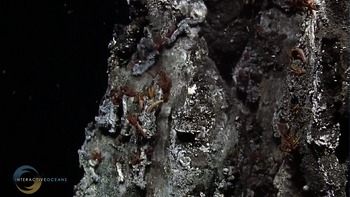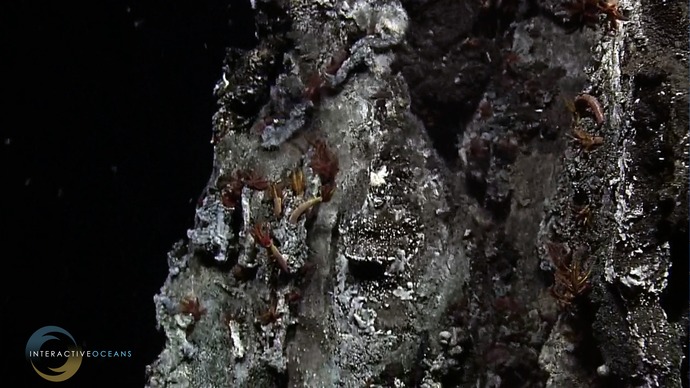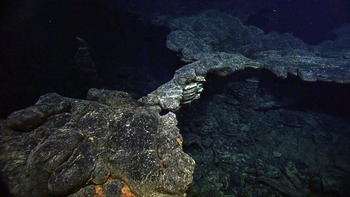- Sunday, August 22
- Friday, August 20
- Wednesday, August 18
- Tuesday, August 17
- Monday, August 16
- Sunday, August 15
- Sunday, August 15
- Saturday, August 14
- Friday, August 13
- Thursday, August 12
- Wednesday, August 11
- Tuesday, August 10
- Monday, August 09
- Monday, August 09
- Sunday, August 08
- Saturday, August 07
- Friday, August 06
- Friday, August 06
- Thursday, August 05
- Thursday, August 05
- Wednesday, August 04
- Tuesday, August 03
- Monday, August 02
- Monday, August 02
- Sunday, August 01
- Sunday, August 01
August 2010
July 2010
Jason Dive 515 ended at 0120h this morning after more than 30 hrs in the water. Drilling small holes in black smokers at greater than 5000 feet beneath the ocean's surface is a complex engineering feat. The irregular surfaces and hot temperatures of the chimneys create an especially challenging environment. But we were successful in drilling three holes and inserting three temperature sensors. Three cores were recovered and UW graduate student Monica Kerr-Riess worked through the morning subsampling the cores and preserving them for follow-on microbial work. Very little work has been done on the microbes that thrive within the chimney walls, and Monica's graduate fellowship from the National Science Foundation will allow her to pursue characterization of these microbes.
Following completion of the dive and with Jason back on deck, the drill barrels were removed and operations immediately began to transform the sled for a variety of tasks to be completed today during Dive 516. These tasks include: recovery of the Tim Crone's camera, which has been taking images of a venting orifice on the Medusa chimney in the ASHES hydrothermal field; collecting high-resolution, detailed imagery of the vents in ASHES for follow-on planning of potential instrumentation sites as part of NSF's Ocean Observatories Initiative (OOI) Regional Scale Nodes (RSN) cabled observatory; and a several-hour run along the Axial caldera floor to plan cable routes for the OOI-RSN.



